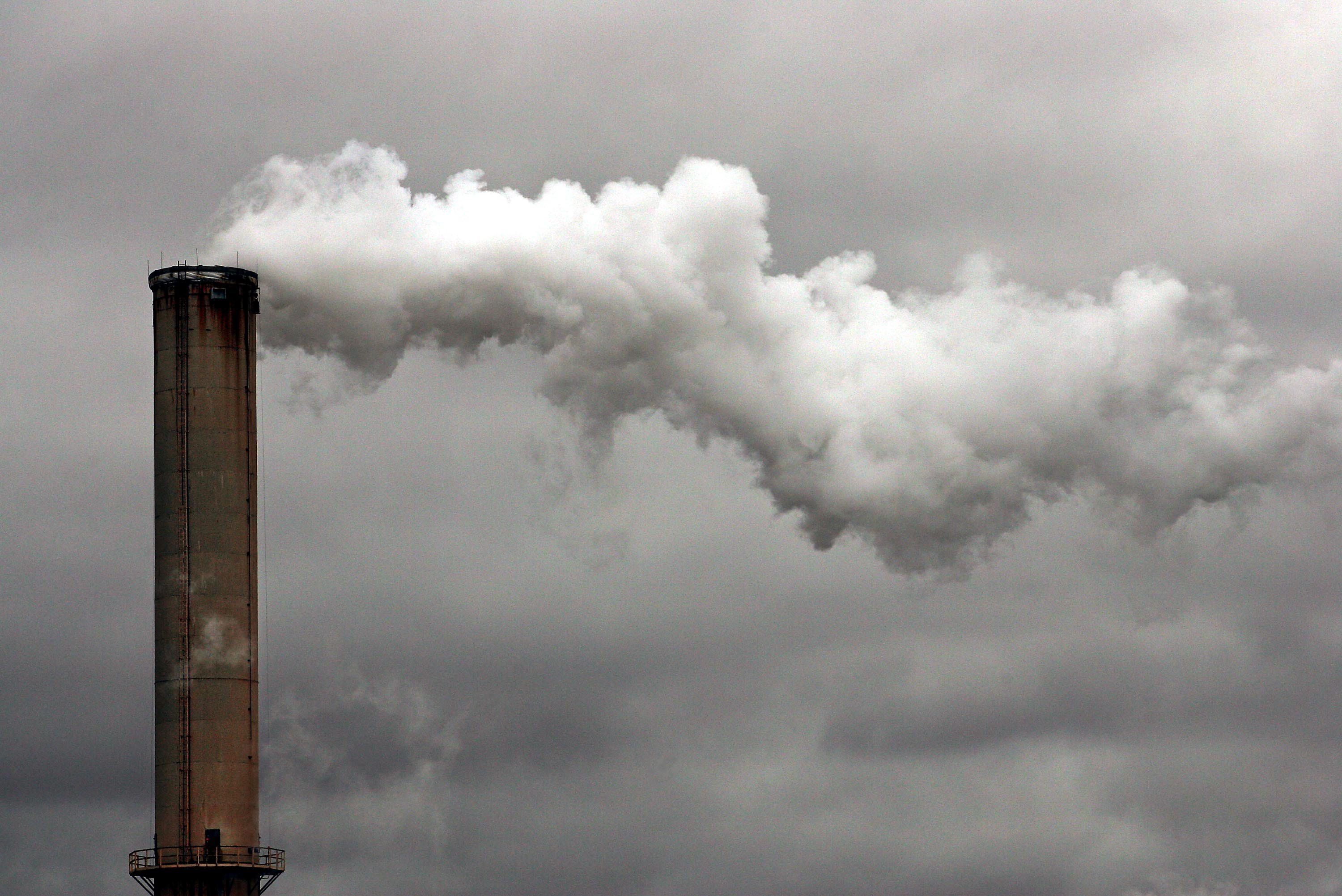Trump administration proposes mandating purchase of coal, nuclear power, citing national security


A free daily email with the biggest news stories of the day – and the best features from TheWeek.com
You are now subscribed
Your newsletter sign-up was successful
On Friday, the White House National Security Council is schedule to review a draft proposal from the Energy Department that would order power grid operators to buy energy from ailing coal and nuclear power plants, citing national security needs, Bloomberg News reports, calling the proposal "an unprecedented intervention into U.S. energy markets." Coal and nuclear plants are closing down due to age and market forces — natural gas and renewable energy are cheaper and cleaner — and the proposal is pitched as a "prudent stop-gap measure" that will subsidize struggling coal and nuclear plants while the Energy Department conducts a two-year study on "grid security challenges."
This isn't Energy Secretary Rick Perry's first attempt to subsidize coal and nuclear plants — federal regulators shot down his plan to directly compensate those plants in January, saying there's no evidence closing coal-fired plants would endanger the electric grid and such a move would raise costs for consumers. But this new 41-page proposal, dated May 29 and marked "not for further distribution," relies on emergency powers under the Federal Power Act and the 68-year-old Defense Production Act. Experts told Bloomberg that invoking national security concerns could stave off challenges this time around.
Saving coal and nuclear plants is a top priority for some of President Trump's major donors, and Trump has made saving coal a public crusade, but it wasn't clear if "Trump had signed off on the action nor when any order might be issued," Bloomberg said. Critics of bailing out coal producers, including natural gas and renewable energy advocates, say there are better, cheaper ways to safeguard the power grid than meddling with energy markets. You can read more about the proposal at Bloomberg News.
The Week
Escape your echo chamber. Get the facts behind the news, plus analysis from multiple perspectives.

Sign up for The Week's Free Newsletters
From our morning news briefing to a weekly Good News Newsletter, get the best of The Week delivered directly to your inbox.
From our morning news briefing to a weekly Good News Newsletter, get the best of The Week delivered directly to your inbox.
A free daily email with the biggest news stories of the day – and the best features from TheWeek.com
Peter has worked as a news and culture writer and editor at The Week since the site's launch in 2008. He covers politics, world affairs, religion and cultural currents. His journalism career began as a copy editor at a financial newswire and has included editorial positions at The New York Times Magazine, Facts on File, and Oregon State University.
-
 Buddhist monks’ US walk for peace
Buddhist monks’ US walk for peaceUnder the Radar Crowds have turned out on the roads from California to Washington and ‘millions are finding hope in their journey’
-
 American universities are losing ground to their foreign counterparts
American universities are losing ground to their foreign counterpartsThe Explainer While Harvard is still near the top, other colleges have slipped
-
 How to navigate dating apps to find ‘the one’
How to navigate dating apps to find ‘the one’The Week Recommends Put an end to endless swiping and make real romantic connections
-
 TikTok secures deal to remain in US
TikTok secures deal to remain in USSpeed Read ByteDance will form a US version of the popular video-sharing platform
-
 Unemployment rate ticks up amid fall job losses
Unemployment rate ticks up amid fall job lossesSpeed Read Data released by the Commerce Department indicates ‘one of the weakest American labor markets in years’
-
 US mints final penny after 232-year run
US mints final penny after 232-year runSpeed Read Production of the one-cent coin has ended
-
 Warner Bros. explores sale amid Paramount bids
Warner Bros. explores sale amid Paramount bidsSpeed Read The media giant, home to HBO and DC Studios, has received interest from multiple buying parties
-
 Gold tops $4K per ounce, signaling financial unease
Gold tops $4K per ounce, signaling financial uneaseSpeed Read Investors are worried about President Donald Trump’s trade war
-
 Electronic Arts to go private in record $55B deal
Electronic Arts to go private in record $55B dealspeed read The video game giant is behind ‘The Sims’ and ‘Madden NFL’
-
 New York court tosses Trump's $500M fraud fine
New York court tosses Trump's $500M fraud fineSpeed Read A divided appeals court threw out a hefty penalty against President Trump for fraudulently inflating his wealth
-
 Trump said to seek government stake in Intel
Trump said to seek government stake in IntelSpeed Read The president and Intel CEO Lip-Bu Tan reportedly discussed the proposal at a recent meeting
